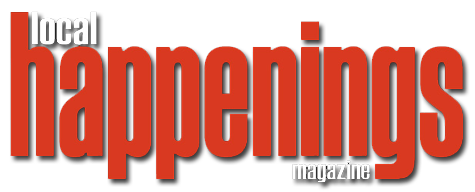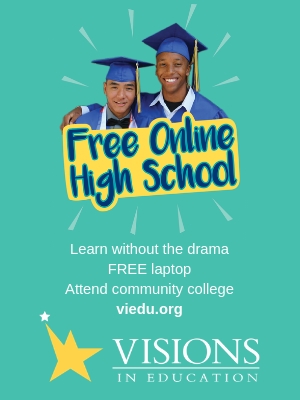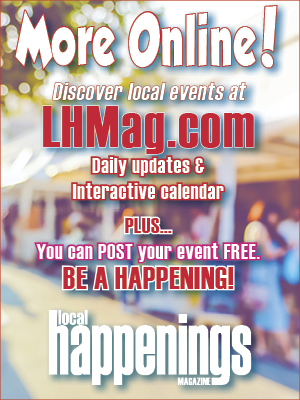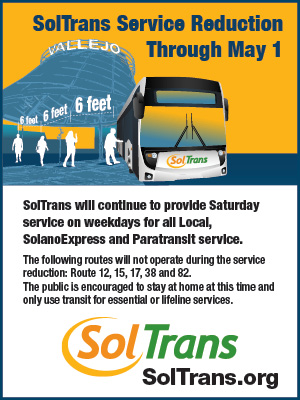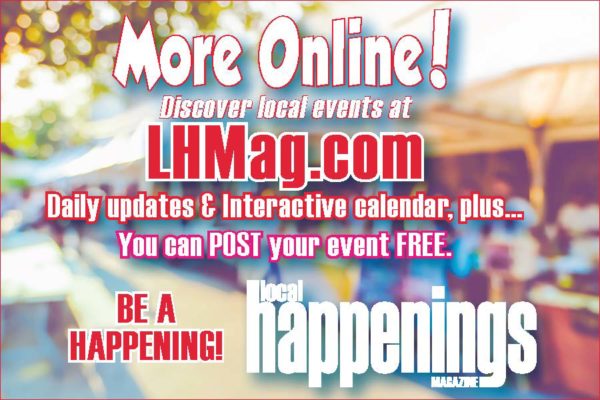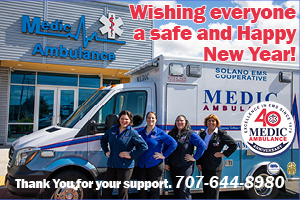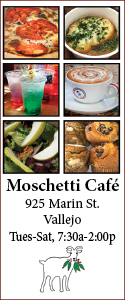
In 2018, Chaunté Crockett remembers how alone she felt as a soon-to-be single mom. When she was six months pregnant with her life about to dramatically change, a colleague recommended that she visit Solano Heals, a multipronged coalition supported by Solano Public Health with the mission to promote equity in healthy births for black babies and their families in Solano County.
After sharing her story with someone in the program, she met other soon-to-be mothers in a discussion group. The highway patrol dispatcher soon found that many were working moms like herself, running 12 hour shifts from morning to evening.
“Everybody came from a different perspective and had their own insight into my situation,” she said, “and there were others who had gone through it before me.”
The discussion group provided her a therapeutic space where she received useful information, such as helpful breastfeeding tips, and played games with the group based on what they had learned.
“Whenever you needed something, whether it was a good or a bad day, the staff was always available by phone or text,” Ms. Crockett remembers. “I had to reach out to them a lot, and after I had my baby, we would do home visits to follow up.”
After she had her son, she and the other mothers continued to meet on their own for walks on the Vallejo waterfront and birthday parties, even open mic nights. Her time in the program had helped her build a community, and her son has friends to grow up with straight from the womb.
“I saw her just sprout up and become a better mother and stronger woman, so the support and encouragement in this program is awesome,” her mother added. “I’ve never seen her happier than this.”
“We’re not a cookie cutter program, explained Angelique Anderson, a social worker at Solano HEALS. “Most people think (black infant health) outcomes have to do with socioeconomic status, but it’s not that at all. The toxic stress levels are very unique to being a black mother in America.
“Moms who’ve had masters level degrees in our program find it very beneficial,” she continued, “especially when we get them the information that they’re just as at risk in comparison with white mothers with no high school diploma.”
The people at Solano HEALS provide the education that new mothers need to make healthier lifestyle choices, in addition to addressing the broader social determinants of health that the organization is trying to change. Each aspect is designed to give every baby and family the resources, support, and environment they deserve at the start of life.
According to the CDC, approximately 700 women die each year in the United States as a result of pregnancy or delivery complications, with 47.2% of them being black/African American. Most of these complications develop during pregnancy, and most are preventable or treatable, stressed Ms. Anderson.
“In 2020 you wouldn’t think that’d still be an issue, but it’s still very much an issue,” she said.
Solano Heals helps women advocate for themselves with health care providers by partnering with Kaiser and La Clinica de la Raza to provide group prenatal care for African American women where they can discuss their health and well-being throughout pregnancy in a nurturing environment.
In addition, Touro University California (TUC) has partnered with Solano HEALS to provide Race Equity Training to health care providers in Solano County to help unpack how to approach matters like implicit bias, which have had a historic impact on the black community that is still felt today.
Another objective to address these inequities is an online toolkit for community members that aims to de-stigmatize mental health in the black community and provide local resources for mental health support and services. TUC was also able to help secure a grant for Solano HEALS to extend its reach online with the creation of a mental health toolkit. As part of the effort to normalize the conversation around mental health, the site will provide visitors a mental health screening as well as a platform for mothers to share their stories and hear from people in the same shoes, much like with Ms. Crockett and her mothers’ group.
“Women who experience untreated mental health issues such as depression and anxiety during pregnancy are at greater risk of having a preterm delivery or delivering a low birth weight baby” explained Dr. Carly Strouse, Assistant Professor of Public Health at TUC. “This can have negative impacts on the developing child with a risk of poor mother-infant attachment as well as long term emotional dysregulation for their child.”
Preventing these effects means addressing the cultural biases that prevent many African Americans from accessing care due to things like prior experience with misdiagnosis, inadequate treatment, or lack of cultural awareness.
“We’re trying to de-stigmatize support and mental health services,” she said. “The important thing is that (mothers are) being seen and followed so if anything happens, they’re already connected to a provider.”
If you are interested in joining the Solano HEALS coalition or their resources and training, visit solheals.wixsite.com/solanoheals.

Most people understand the image of a pharmacist filling a bottle of pills and explaining the proper dosage to a patient.
Many pharmacists, however, are involved in research and academic pursuits related to pharmacology. What those pharmacists study can range greatly depending on their personal interests.
For 2014 PharmD/MPH Touro University California grad Dr. Ben Malcolm, his focus began well-before he even began pursuing a career in pharmacology.
“I’ve always had a general interest in things related to biology and chemistry,” Dr. Malcolm said. His inspiration grew from a television program called, “Intervention.” The show focuses on individuals battling addictions to drugs like meth and heroin.
“I really became curious about what it was that would cause someone to give up their family, give up their job, their house,” Dr. Malcolm said. He became fascinated by these illicit substances – not in the traditional way teenagers are normally intrigued by drugs – and studied them more closely.
Through Internet research, he came across a forum of people sharing stories about their experiences with different types of illegal drugs and the stories were generally divided into two different categories.
For some, drugs like meth and heroin, which are classically known for their addictive traits, the stories were ones of ruin and self-destruction time and time again, Dr. Malcolm found.
Others, who had experiences with psychotropic substances like peyote, mescaline and so-called “magic” mushrooms, almost always told tales of life-changing experiences for the better.
“I had always heard all along that all drugs were bad, and I just thought it was overblown, but this really confirmed it to me,” Dr. Malcolm said.
Dr. Malcolm found that his Touro education opened the door for him to further investigate the drugs from a scientific and medical perspective.
As his knowledge with the drugs built, he began giving a series of Ted-like talks about their potential uses and benefits medically. Through these talks, Dr. Malcolm eventually made connections that soon led him back to where his fascination with the topic all began – TV.
Producers from the television show, The Doctors – a bit like a mashup between Dr. Oz and The View – contacted Dr. Malcolm to be a guest expert on the subject during a recent taping.
An opposing viewpoint offered up during the segment leaned heavily on the general Just Say No advocacy prevalent in the 1980s and prior. It was the kind of pushback Dr. Malcolm says doesn’t hold water much these days.
“I can’t think of anything less medically vague than saying someone might have a bad trip,” Dr. Malcolm said. “Save the moral judgment and say specifically in medical terms what makes it a bad trip?”
Nearly half of all US states now how some version of a legalized marijuana law on the books and other drugs, like magic mushrooms, are finding a similar footing, with the cities of Denver and Oakland each legalizing mushrooms in recent years.
“The data will set us free,” Dr. Malcolm said. “This is a renaissance that is going to occur before our very eyes in the next 10 to 15 years.”
Dr. Malcolm said psychotropic substances, in particular, deserve closer study and scrutiny to measure the potential harms and benefits – just like any other drug coming into the marketplace.
Historical study of substances like peyote and mescaline show that different cultures around the world have used them not to get high or to “party” but for spirituality and other sacramental uses, Dr. Malcolm said.
He called these drugs just another tool to combat afflictions that plague people worldwide, like depression, for example.
“Can you use a hammer to drive in a nail and finish a job, yes,” Dr. Malcolm said. “But you can also use a hammer wrong and smash your thumb. We need to do more research to figure out ways to help people avoid smashing their thumb. But these drugs are just tools. That’s all.”

Perhaps it’s fitting that a college located on an island could be seen as providing a bridge to the future, but that’s exactly what Touro University California DO/MPH student Timothy Kim is hoping happens with Pharm Fresh.
Pharm Fresh, in one light, is an urban farming initiative, but from Kim’s perspective represents a paradigm shift in how communities and individuals currently interact with their food, and how agriculture and healthcare professionals can work together with community advocates to reshape how food can promote the health of communities.
Kim won the Student Shark Tank at Touro, which helped him push Pharm Fresh forward and, in earning a San Francisco Bay Area Albert Schweitzer Fellowship, the concept took off and it’s now a fiscally sponsored non-profit urban farm.
A team of healthcare students, agriculture students, doctors, farmers, soil engineers, nutritionists, and community advocates have helped make Pharm Fresh something more than just a collection of greens growing in a lot once littered with broken bricks and shattered glass.
Some community organizations, like Global Center for Success, Vallejo People’s Garden, and Harmony Organics helped Pharm Fresh build momentum.
“We were recently awarded the 2019 Napa-Solano Community Benefit Grant from Kaiser Permanente,” Kim said. The group also co-launched the Touro COOKS event, provides Employee Wellness Program seminars at Kaiser and are launching DIY kits for commercial sale among various other projects.
“We believe medicine needs to shift from “sickcare” to “healthcare,” Kim said, “and agriculture needs to shift from growing calories to growing nutrients.”
Kim’s goal is to have Pharm Fresh serve as a foundation for a network of microfarms throughout the city that serve their own micro-communities while leveraging the larger network for more sustainable and consolidated overhead logistics, and they’ve been working with Sustainable Solano to build that model.
“Our hope is that this model will not only create more job opportunities by offering profit sharing, but also make the supply chain from seed to plate a more familiar, personal, and quality experience that remains . . . centered around the end consumer.”
Touro is developing a food pantry to address students who may be experiencing food insecurity during their time on campus, which Kim had input with. The parallels between the food needs of students on campus and residents in the Vallejo community are part of what drove Kim’s project.
His effort to assist the needs of students and residents alike has drawn praise.
“We are always interested in doing everything we can to ensure student success at Touro,” said Steven Jacobson, Dean of Student Affairs at Touro. “Pharm Fresh not only tackles this problem but it also demonstrates what our students are capable of with the proper encouragement and support.”
As for Kim, he’s cognizant that the seed for his own rapidly growing idea was first planted at Touro.
“The faculty at Touro is made up of some of the most forward-thinking and supportive people I’ve ever met.”
As for his own leadership, Kim doesn’t think he’s terribly different than his fellow Touro students.
“There are so many leaders and visionaries (at Touro) that are working to reimagine how certain aspects of health and medicine are being practiced or utilized.”
As another academic year comes to a close, a new generation of healthcare professionals enters the workforce striving to improve the health of their communities. Each new graduate earns their degree after being seasoned by both a wealth of knowledge in the classroom and clinical experience while on rotation. One new pharmacist, Helen Berhane, Pharm.D., graduated from the Touro University California (TUC) College of Pharmacy on May 19th. Were it not for the experiences she had during rotation, she says that she wouldn’t have considered her upcoming residency at Stanford’s Lucile Packard Children’s Hospital.
While rotating throughout California, Dr. Berhane saw up close the innocence of children who face difficult diseases. Being in a position to help those so young and small fighting something fully out of their control inspired her to do all that she could, she says.
“I saw children who despite having severe illnesses still smiled and enjoyed life,” reflected Dr. Berhane. “That made it even more motivating to chart their daily progress and optimize their antibiotics, pain regimens, and overall care.”
As a pharmacist, knowing not only what is going wrong in the body but how on a molecular level the medications compensate for the damage that is happening is a skill that Dr. Berhane finds essential not only for providing care but also in easing the fears that patients have about their treatment.
“People will often have a fear of drugs or Western medication, especially if they come from underserved communities,” she stressed. “When you understand what is going on at a molecular level, it can help to deliver the message of just how it will help them.”
A first-generation American whose parents emigrated from Eritrea, Dr. Berhane is the first of her family to go to college and pursue a doctoral degree. At home, she has used her knowledge to ease her mother’s concerns about the insulin she takes.
On a different clinical rotation, Dr. Berhane strove to arrange long-term treatment plans for refugees on expiring visas who would soon be returning home. In some cases, the diseases carry cultural stigmas, such as HIV, and she would try to help patients find ways to continue treatment even as they were afraid to store the medication in their own homes.
Looking back on her four years as a graduate student at TUC, Dr. Berhane is spirited by the experience.
“The university and the greater Vallejo area was the perfect environment for my graduate study,” she stated. “It is so easy to be involved. Not just with extracurricular activities and in the community, but by getting to know the faculty and the dean.”
It was a community that came to support her during the university’s annual Mosaic Diversity Scholarship Fundraiser Celebration, an event that happens every April, where donors and sponsors from throughout Solano County come together to support students just like Dr. Berhane in their academic climb.
“It really helped me be less concerned about financial burdens and focus more on what I wanted to accomplish, both in terms of research and community service,” Dr. Berhane remembered. “It really helped me in that regard. And it felt great to be part of a celebration of diversity inclusion. That’s something that I really stand for.”

The prevalence of autism has been on the rise for decades but has been more pronounced since approximately 2000. According to the Center for Disease Control (CDC) in 2000 the rate was documented as 1 in 150, and most recently this increased to 1 in 59.
The increased rate of autism diagnosis is in part due to a broadening of the definition of autism to an autism spectrum disorder (ASD) and increased awareness of autism. With the broadened definition of ASD more of these individuals are of average to above average intellectual ability. More than ever individuals with autism are seeking college degrees and preparing for careers.
Jude was a fully included high school student with ASD; he is also non-verbal and has had a history of behavioral issues. Given a behavior support plan and communication device he completed high school successfully. While in high school he participated in Person Center Planning. In the process of developing that plan Jude and his team all agreed he loved to watch water.
The school had a horticulture course, which Jude and his team thought might interest him. Jude’s first role was watering, keeping with his interest. Soon it was discovered that he had abilities in plant care, pruning, and weeding. This led to a job at a local nursery and courses in the local junior college and now as an adult he works on an organic farm. What led to Jude’s success? Jude’s self-advocacy and a team planning process with Jude’s friends, family and school personnel as well as some of the seven tips presented here.
Tips for those with ASD who are preparing for college or a career:
- Find your strength and interests. Number one for all individuals preparing for college and career is to find their passion. Match that interest or strength to a major or job opportunity. Often individuals with autism choose majors in math, engineering or sciences. Individuals may need support in recognizing their strengths and matching up appropriately. Counselors can provide that support.
- Develop self-advocacy skills. This starts young providing opportunities to make choices over small decisions to eventually important life decisions. Students need to participate in 504 planning and IEPs. Prepare for participation by asking questions ahead of time, get input prior to meeting, and develop shared goals.
- Develop social skills. The social rules for different environments need to be directly taught and reinforced. Provide social rules as visuals using apps and reminders. There are professionally created videos however individuals can create their own stories in apps such as Pictello. Social skill groups offered at school and in the community are good places to learn foundations, but they need to be practiced in real world situations. Provide opportunities to socialize in clubs and teams with all abilities.
- Develop conversation skills. Often individuals struggle with holding conversations at work, during meals, and down time. Knowing what topics of conversation are appropriate to the situation can be problematic. With the help of mentors or peers develop conversation starter lists. For example, Friday lunch topics talk about weekend plans, ask about current popular movies or events. Use technology to track the lists in the built-in apps such as Notes or iBook.
- Participate in groups. Participation in group projects can be challenging for many individuals. Knowing this is a challenge, group participation needs be addressed directly. Pair with a peer or mentor in a dyad with an adult facilitator while in secondary school. Practice taking turns and collaborating with constructive feedback.
- Seek internships and connections that match with strengths. Many students get internships in high school and beyond in preparation for careers. Through community connections and school academies seek internships that match strengths.
- Develop organization skills. We all know how important those executive functioning skills are, such as organization, time management and planning for later success in school and work. There are apps to assist with schedules and step-by-step skill development. For example, in the App Visual Planner there are files for notes, activities, schedules, and step-by-step organization tools that can include time-based guides.
These tips are presented as a general guide to help close the gap in employment and college completion.

By Linda Haymes, PhD, BCBA-D
Associate Professor & Chair of Special Education
Graduate School of Education, Touro University California

While out browsing the booths at the Vallejo Farmer’s Market or the Napa-Vallejo Flea Market, one can find graduate students in white coats providing free medical services like blood pressure checks or health screenings. These future healthcare professionals at Touro University California (TUC) go out to apply the skills that they are learning in the classroom to increase access to care in the North Bay Area, especially for those who are underserved. Two of the most direct avenues to seek out these free health services from TUC are the Student-Run Free Clinic (SRFC) and the Mobile Diabetes Education Center (MOBEC).
The Student-Run Free Clinic opens at the Norman C. King Community Center from 4:30 to 8:30 every Thursday. To make an appointment, call (707) 653-6331.
The SRFC in South Vallejo is run and directed by student volunteers in fields like osteopathic medicine, pharmacy, physician assistant studies, and nursing. With the supervision of precepting doctors and pharmacists, the students bring an interprofessional range of experience directly into the community. In just the past year, the clinic has seen a 64% increase in volunteer hours and a 60% increase in scheduled patient visits.
The students at the clinic address a wide range of issues. Some come in with chronic pain due to old injuries, such as back pain or difficulty walking. After going over a patient’s history, students can perform Osteopathic Manipulative Treatment, which is the realignment of the body to assist its own pathways to health. Most patients with chronic issues end up using far less medication and become more functional because they’re having the treatment done on a regular basis, says Gail Feinberg, DO, Clinical Director of the SRFC.
“These students work together to pick up where a busy primary care provider leaves off,” says Dr. Feinberg. “At the clinic, they put in the time to address the patient’s other barriers to health without having to do anything physically to them.”
With new sponsorship from Kaiser Permanente, the SRFC also offers additional flu vaccinations and diabetes A1-C tests. Patients can have their medications overviewed by student doctors of pharmacy, receiving education and recommendations on alternative options catered to the patient’s own needs. College of Pharmacy students also help patients sort through and fill out time-consuming forms to apply for patient assistant programs for prescription medications.
“I love seeing patients come back so proud and making positive changes for their health,” said Leslie Wu, PharmD candidate of 2021. “It is extremely motivating to know that the team was able to make a difference for even one patient.”
To find out where you can meet the MOBEC or take a class, visit http://www.tu.edu/mobec/index.html or call (707) 636-5970.
Out on the MOBEC, students bring FREE diabetes screening and education to the people of Solano County. Made possible through a generous gift from Sutter Health Foundation, the state-of-the-art MOBEC is designed to break the barrier between healthcare providers and those in the community for the prevention of diabetes. It also reaches out to those who may not otherwise have adequate access to healthcare.
Approaching its third year of service, the MOBEC has seen more than 3,800 visitors and administered over 2,000 blood glucose screenings. Interacting one-on-one with those in the community, future health professionals and public health practitioners assess the visitor’s risk factors for diabetes and provide diabetes screenings—both blood glucose and A1C. Students also give individualized counseling regarding lifestyle modifications, nutrition, medication education, and exercise education.
“Their presence has been just such a bonus for the people who can’t afford health care on a regular basis,” stressed Benjamin Buggs, Founder of Faith Food Fridays in Vallejo.
By reaching out to people in the communities where they live, the MOBEC aims to bring greater community awareness to diabetes and pre-diabetes, which affects 55% of Californians. The longer that diabetes goes untreated, the harder it is to control, so early detection is key.
“Diabetes is a progressive disease that marches forward whether we go with it or not. But it’s a disease that can be controlled if we’re aggressive with it,” stressed Dr. Shubrook, Professor and Diabetologist at TUC’s College of Osteopathic Medicine. “You can live a normal life with type 2 diabetes. It requires proactive aggressive management, and knowing your status is the first step of it.”

